The Sound Factory Music School
|
Guest post by Trishna Patnaik Why Does Music Affect Our Emotions? Can you envision a life without music? A world where your favourite musician is a doctor, lawyer, or construction worker because music doesn't exist? A life where you can't turn on your favorite workout playlist while going for a run? Or the pump-up song to boost your confidence right before your big presentation cannot happen? If you can't, you are definitely not alone. Music tends to hit on us a deep level. Whether it is sad music that helps us feel relatable when we are going through hard times or joyful music that adds an extra bounce to your step, music is incredibly powerful! But, then why is this case? Why does music impact your brain and mood so deeply? Music is a universal language, but we don’t always pay enough attention to what it’s saying and how it’s being understood. We wanted to take an important first step toward solving the mystery of how music can evoke so many nuanced emotions. Music has a special ability to pump us up or calm us down. Listening to music can be entertaining, and it might even make you healthier. Music can be a source of pleasure and contentment, but there are many other psychological benefits as well. Music can relax the mind, energize the body, and even help people better manage pain. Brain regions involved in movement, attention, planning and memory consistently showed activation when participants listened to music -- these are structures that don't have to do with auditory processing itself. This means that when we experience music, a lot of other things are going on beyond merely processing sound. Knowing better how the brain is organized, how it functions, what chemical messengers are working and how they're working -- that will allow us to formulate treatments for people with brain injury, or to combat diseases or disorders or even psychiatric problems. The notion that music can influence your thoughts, feelings, and behaviours probably does not come as much of a surprise. If you've ever felt energized while listening to your favourite fast-paced rock anthem or been moved to tears by a tender live performance, then you easily understand the power of music to impact moods and even inspire action! The psychological effects of music can be very powerful and wide-ranging. Music therapy is an intervention sometimes used to promote emotional health, help patients cope with stress, and boost psychological well-being. Your taste in music can provide insight into different aspects of your personality. Why do people listen to music? Study over the past several decades has showcased numerous functions that listening to music might fulfill. Different theoretical approaches, different methods, and different samples have left a heterogeneous picture regarding the number and nature of musical functions. Principal component analysis suggested three distinct underlying dimensions - People listen to music to regulate arousal and mood, to achieve self-awareness, and as an expression of social relatedness. The first and second dimensions were judged to be much more important than the third—a result that contrasts with the idea that music has evolved primarily as a means for social cohesion and communication. The implications of these results are discussed in light of theories on the origin and the functionality of music listening and also for the application of musical stimuli in all areas of psychology and for research in music cognition. The psychology of music seeks to interpret musical phenomena in terms of mental function; that is, it seeks to characterize the ways in which people perceive, remember, perform, create, and respond to music. While centred on the empirical findings and theoretical approaches of psychology, the field is highly interdisciplinary, with input from neuroscientists, linguists, geneticists, computational modellers, physicists, anthropologists, music theorists, music performers, and composers. While the study of music has a long history, dating from the ancient Greeks, the psychology of music as an empirical science did not emerge as a full-fledged discipline until the second part of the 20th century. During the last few decades the field has advanced rapidly, and it interfaces strongly with other branches of psychology, such as the studies of perception, cognition, performance, human development, personality psychology, psycholinguistics, clinical neuropsychology, evolutionary psychology, ability testing, and artificial intelligence. Musical activity combines perceptual, cognitive, and motor skills in real time and it can offer social and health benefits for diverse populations. While psychologists and neuroscientists probe musical activity for insights about the human mind and brain, music scholars examine its cultural, pedagogical, and theoretical aspects. Though these approaches can complement each other, scientific and humanistic studies of music are often disconnected. This can result in experiments with flawed musical stimuli and musicological writings with problematic assumptions about human cognitive processes. The human brain contains neural mechanisms specific to music perception. It has identified a neural population in the human auditory cortex that responds selectively to sounds that people typically categorize as music, but not to speech or other environmental sounds. It has been the subject of widespread speculation.
Background music, or music that is played while the listener is primarily focused on another activity, can improve performance on cognitive tasks in older adults. One study found that playing more upbeat music led to improvements in processing speed, while both upbeat and downbeat music led to benefits in memory. So the next time you are working on a task, consider turning on a little music in the background if you are looking for a boost in your mental performance. Do consider choosing instrumental tracks rather than those with complex lyrics, which might end up being more distracting! Music Can Reduce Stress It has long been suggested that music can help reduce or even manage stress. Consider the trend centred on meditative music created to soothe the mind and inducing relaxation. Fortunately, this is one trend supported by research. Listening to music can be an effective way to cope with stress. It had an impact on the human stress response, particularly the autonomic nervous system. Those who had listened to music tended to recover more quickly following a stressor. Music Can Help You Eat Less One of the most surprising psychological benefits of music is that it might be a helpful weight-loss tool. If you are trying to lose weight, listening to mellow music and dimming the lights might help you achieve your goals. Music and lighting help create a more relaxed setting. Since you are more relaxed and comfortable, then you may consume food more slowly and be more aware of when you began to feel full. You might try putting this into practice by playing soft music at home while you eat dinner. By creating a relaxing setting, you may be more likely to eat slowly and, therefore, feel fuller sooner! Music Can Improve Your Memory Some feel like listening to their favourite music improves memory, while others contend that it simply serves as a pleasant distraction. It depends upon a variety of factors, including the type of music, the listener's enjoyment of that music, and even how musically well-trained the listener may be. Musically naive students learned better when listening to positive music, possibly because these songs elicited more positive emotions without interfering with memory formation. However, musically trained students tended to perform better on learning tests when they listened to neutral music, possibly because this type of music was less distracting and easier to ignore. If you tend to find yourself distracted by music, you may be better off learning in silence or with neutral tracks playing in the background. Music Can Help Manage Pain Music can be very helpful in the management of pain. The effects of music on pain management found that patients who listened to music before, during, or even after surgery experienced less pain and anxiety than those who did not listen to music. While listening to music at any point in time was effective, noted that listening to music pre-surgery resulted in better outcomes. Music listeners require less medication to manage their pain. There was also a slightly greater, though not statistically significant, improvement in pain management results when patients were allowed to select their own music. Music May Help You Sleep Better Insomnia is a serious problem that affects people of all age groups. While there are many approaches to treating this problem, it has been demonstrated that listening to relaxing classical music can be a safe, effective, and an affordable remedy. Sleep quality is enhanced for those who listened to soothing music before going to sleep over a period of time without any intervention or breakages Music Can Improve Motivation There is a good reason why you find it easier to exercise while you listen to music. Listening to fast-paced music motivates people to work out harder. Speeding up the tracks resulted in increased performance in terms of distance covered, the speed of pedalling, and power exerted. Conversely, slowing down the music's tempo led to decreases in all of these variables. So if you are trying to stick to a workout routine, consider loading up a playlist filled with fast-paced tunes that will help boost your motivation and enjoyment of your exercise regimen! Music Can Improve Mood Another of the science-backed benefits of music is that it just might make you happier! People who listen to music knew an important role in relating arousal and mood. Participants rated music's ability to help them achieve a better mood and become more self-aware as two of the most important functions of music. Listening to music is not directed to become happier intentionally! However, if you do so by working to determine your own levels of happiness, you will show improvement in the moods and feeling happier. Music May Reduce Symptoms of Depression Music therapy can be a safe and effective treatment for a variety of disorders, including depression. Music therapy was a safe, low-risk way to reduce depression and anxiety in patients suffering from neurological conditions such as dementia, stroke, and Parkinson's disease. While music can certainly have an impact on mood, the type of music is also important. Classical and meditation music offer the greatest mood-boosting benefits, while heavy metal and techno music are ineffective and even detrimental. Music Can Improve Endurance and Performance Another important psychological benefit of music lies in its ability to boost performance. While people have a preferred step frequency when walking and running, scientists have discovered that the addition of a strong, rhythmic beat, such as fast-paced musical track, could inspire people to pick up the pace. Runners are not only able to run faster while listening to music; they also feel more motivated to stick with it and display greater endurance. While research has found that synchronizing body movements to music can lead to better performance and increased stamina, the effect tends to be the most pronounced in cases of low to moderate intensity exercise. In other words, the average person is more likely to reap the rewards of listening to music more than a professional athlete might.So why does music boost workout performance? Listening to music while working out lowers a person's perception of exertion. You're working harder, but it doesn't seem like you're putting forth more effort. Because your attention is diverted by the music, you are less likely to notice the obvious signs of exertion such as increased respiration, sweating, and muscle soreness. Engages people with Learning Disabilities There is evidence that music interventions can offer opportunities for creative, psychological, and social developments for individuals with mild to profound learning disabilities, addressing the disadvantages they face in respect of social outcomes. Music can change the world Do you ever listen to a song and find yourself moved so deeply you are almost in tears? Have you ever been to a live performance that turned your worst day into your best? Have you ever heard a song that inspired you? Music has the power to move us and to change us. Yet today’s music mostly does not seem to have the same earth-moving, society-shaping effects as that of the past. With today’s technology, music has become even more of a part of our life experiences: we listen to it on our drive to work, when we go to parties, while we study, when we exercise, and in so many other settings. There are, however, still musicians who hope that their words will inspire change. Music with a message The combination of the right lyrics, rhythm and instruments can build a group identity, stir strong emotions, engage audiences and amass people to take action. This makes music the perfect partner for social change. The Effect of Music on Emotions It is undeniable that music can stimulate our emotions, evoking different feelings like sadness, happiness, calmness, relaxing and nostalgic feelings. This emotional stimulation from music is because it activates areas in our brain that process sound features. It also activates the limbic brain areas associated with emotions and the prefrontal areas, which is connected to decision making! One of the reasons music has a huge impact on our emotions is that our mirror neuron system is activated when music is being played. It may be due to the song’s pitch, volume, and timbre. Indeed, music plays a big part on our emotions. If we are broken-hearted, we react accordingly when we hear music or songs that were connected to our failed relationships. We sometimes find ourselves in tears hearing a song that reminds us of these relational memories. There are also points in our lives when we are feeling so low that listening to something inspirational can often alter our negative mood into a positive one. The Effect of Music on Attainment and Creativity Music is said to enhance one’s creativity and attainment. There is a strong association between music and attainment of tasks! Music could also make us enter into a “wandering mode”. This wandering mode enables us to daydream or imagine things, which sometimes stimulate our creative side. Music can make people smarter? Those who undergo musical training are said to be more cooperative and coordinated than their non-musically trained counterparts. This is probably because people who play an instrument or sing usually work with other people; hence, they learn how to interact and communicate with others, making them more open to social interaction. The Effect of Music on Intellectual Capacity People who are into music; or those who have undergone musical training show an increase in brain plasticity. Brain plasticity is the innate ability of the brain to change shape and get bigger in response to learning or training. There is a significant difference in terms of structures of auditory and motor cortices in the brain and other brain areas between musicians and non-musicians. They found out that musicians tend to have a bigger and structured brain areas compared to non-musicians. Musical training affects other domains such as verbal intelligence and executive functions, which often lead to better academic performance. Music as a Therapy Music can improve your mood, quality of life, and self-esteem, but it is also: Extremely safe Non-invasive Easily accessible Non-expensive Music Boosts Our Moods Can your favourite songs be a form of therapy? It was discovered that music can release dopamine in two main places in the brain, the dorsal and ventral striatum. When you are having a pleasurable experience, such as listening to your favourite song, these areas of the brain light up. These things happen because musical patterns affect our auditory cortex, which is a part of the neural reward system and other areas involved in memory and emotion. Music has accompanied major social events throughout the history of mankind. Major gatherings such as weddings, graduations, or birthdays are usually recognized by a familiar tune! There is evidence that music plays a large role in emotional processes within the brain. An individual’s emotional state of mind can directly impact daily cognition and behaviour. Studies have shown that music has the ability to regulate a wide range of both positive and negative emotions. Determining the degree of music’s influence on aggression using two extremes of genre such as: relaxing yoga music versus aggressive rap music! It is seen that those who listened to yoga music show lower aggression, while those who listened to rap music have higher aggression. Aggressive music can make listeners more aggressive emotionally compared to other types of music! How Many Emotions Can Music Make You Feel? The subjective experience of music across cultures can be mapped within at least 13 overarching feelings: amusement, joy, eroticism, beauty, relaxation, sadness, dreaminess, triumph, anxiety, scariness, annoyance, defiance, and feeling pumped up. About the author
8 Comments
By Gideon Waxman, www.drumhelper.com
Mindfulness is an incredibly liberating practice; one that has exploded as a recent phenomenon in the western world. Interestingly, us moderns are the last people on the planet to uncover the wealth of treasures it has to offer. Music and mindfulness are indeed complementary practices. Music and sounds make a wonderful object of focus for the mind, with mindful listening proven to boost our overall wellbeing and reduce stress significantly. Whilst mindfulness is still finding its way into mainstream culture, music is universal and plays a prominent role in everyday life for most people. Humans are surrounded by music. It is undeniable that it affects people’s moods and emotions, as it engages broad neural networks in the brain. Playing a musical instrument or listening to music whilst encompassing mindful values can transform the experience; creating the framework for a powerful stress reduction and unlocking the full potential music has to offer as it unfolds in the present moment. What Exactly Is Mindfulness? Humans have practiced mindfulness for thousands of years. Mindfulness is the art of being completely engaged in the present moment. It is a transformative practice that allows the mind to be attuned to any present experience, with a clear sense of openness and curiosity. Keep reading to learn more about the Benefits of Mindfulness, what it does For Musicians and Listeners, Using Sound as an Object of Focus, Exploring Sounds and How Musicians can Practice Mindful Movement. Guest post from www.KnowYourInstrument.com  Learning to play a musical instrument is a rewarding experience and helps children build confidence in their abilities as they grow. Developing a child’s musical abilities also stimulates brain functions involved in understanding language as well as mathematical and scientific concepts, which can lead to better performance in school. Parents play a major role in providing their kids with rich musical experiences and supporting their children’s musical development. Research shows that parental support has a positive effect on a child’s enjoyment of music, their motivation to learn and their personal satisfaction with music lessons, their self-esteem and their general regard for learning a musical instrument. If you would like to learn how to support your children’s musical development, here are some practical tips to follow. Make music a regular part of home life Let children listen to music, watch music/concert videos, engage in musical play, express themselves through music and practice their instrument as often as possible. By encouraging musical activities at home, you create a musical culture, an environment in which music is a permanent fixture. It’s not just an extracurricular activity but a part of life. Provide a conducive environment Children learning to play an instrument need a space where they can practice without distractions. If possible, set up a music room where your child can stay when they’re having their lessons or practicing their chords. The room should have ample lighting and good sound proofing. If you don’t have a spare room, a quiet corner will do. Make sure you turn off electronic devices that can be a source of distraction. Appreciate your child’s efforts You can also show your support by praising the effort your child puts into becoming a musician, especially after a particularly difficult lesson or practice session. Remember that it’s not the talent that matters, but hard work. Showing your appreciation for their efforts also reinforces the idea that practice, no matter how tedious it can feel at times, leads to mastery. Take an interest in your child’s lessons Children will be more motivated to learn if their parents are interested in what they’re doing. Ask your child about what they’ve learned that day, the pieces they’re working on, how they feel about the music and what they are going to practice the next day. It would also be a good idea to build rapport with their teacher so you can work out what’s best for your child and how your child would be able to enjoy their lessons more. Help them build self-confidence through public performance Knowing that family and friends will be coming over to watch them play can be a fantastic positive motivator for children learning an instrument. They would want to be able to play well for their loved ones so they practice more. Playing in front of many people can indeed be scary at first, but as children gain more performance experience, the more their confidence grows as well. This would help prepare them for more difficult pieces and a larger audience. Make sure you give your budding musician a standing ovation! What other tips would you like to share with fellow parents who want to support their child’s musical development? Feel free to leave a note in the comments! Hi Sound Factory students and web guests! Learning to play a musical instrument is one of the ultimate examples of forming good long-term habits. Everyone knows it's a process that takes time, but few of us have a concept of how it works and how to guide efforts to avoid bad habits, develop good ones, and ultimately master the new skill. For most of us, this type of long-term muscle memory training happens instinctively as children in learning to do things like stand and walk, master a spoken language, or develop advanced motor skills in our hands and limbs to accomplish complex tasks that we take for granted when we get older but all of these processes took years and lots of concerted repetition, but also regular correction (thanks mom and dad!) to make sure we're doing them correctly so we can add effective tools to life's toolbox. Our guest post from www.selfdevelopmentsecrets.com (below) takes us through the ins and outs of forming good habits to demystify our process and develop the right mindset and program to effectively master learning an instrument. We hope you learn a lot, enjoy the post! How Long Does It Take To Form A Habit And Break A Bad One? Guest post contributed by www.selfdevelopmentsecrets.com How Many Days Does It Take To Form A Habit? According to pop culture, it takes just 21 days to break an old habit and form a new one. People have cherished this belief over the past few decades. It’s hardly surprising that so many people cite this as a valid statistic. After all, all you need to do is to commit to practicing your new habit for three weeks. Then, hey presto, it becomes ingrained. But, as many will attest, three weeks might not be enough to break a particularly ingrained habit. 21 days might not be enough to break a particularly ingrained habit Are these people weak-willed? Are they just not committed enough? Perhaps they really don’t want to change? Or is there a more straightforward reason why 21 days doesn’t always cut it? In this post, we’ll look at how long it actually takes to form a new habit, and how to make a new habit stick. How Long Does It Take To Break A Habit? First off, let’s deal with that magic number – 21 days. It was Dr. Maxwell Maltz who first came up with this time frame. He decided to study how long it took his patients to adjust to the changes made by the surgery he performed. Now, it’s helpful to understand that Maltz was a plastic surgeon and that the patients that he studied had undergone plastic surgery. So, the research he conducted was not directly related to people who were trying to change habits, but rather those who had to because of a surgical procedure. It’s also useful to note that he said, at least 21 days, not just 21 days. Considering that the surgery was a fait accompli, and the patients didn’t have a choice but to adjust, it’s not a fair comparison for those who had to who had options. It wouldn’t be fair to compare this situation to that of someone who chooses to quit smoking, for example. The smoker has the option, and temptation, of being able to light up at any time. The person who underwent surgery does not have the same kind of pressure. When it comes to breaking a habit, it’s more complicated. The time frame for breaking a habit can vary from one person to the next, based on a range of factors. How Ingrained Habit Is You have to factor in just how ingrained the habit is, for starters. Someone who has been smoking for a week, for example, will find it easier to quit than someone who has been smoking for 20 years. Every time we repeat an action, the neural pathway in the brain related to that action becomes reinforced. Think of it as a path in a field. Every time you walk along the trail, it becomes more defined. Over time, you’ll know where to go automatically, and you can walk the correct route without thinking about it. The same kind of thing happens in the brain. The brain is always trying to be more efficient. The more often we repeat an action, the easier it becomes for the brain to perform it automatically. Repeating allows the brain to do other things while it goes on autopilot. So, when you first learn to drive, it’s hard, and you have to concentrate completely on driving. Once you have the hang of it, though, you brake, steer, etc., automatically, without even having to think about it. That’s because the neural pathway related to driving has become so reinforced by habit. When you get into the car and start it up, that automatic behavior is triggered, and you act without thinking. Willpower has nothing to do with it in most cases, which is why it can be tough to break an existing, ingrained habit. How Motivated You Are We’ve all been there. At the end of the year, we make New Year’s resolutions. We dust off that gym membership card, toss out all the junk food in the house, and stock up on celery, which works well, until about two weeks into the new year. That’s about when the motivation starts to fade, and we slip back into old habits. After all, we’ve had a tough day at work; surely we can skip the gym just this once? The problem is that “just once” always multiplies, and we end up spending more time away from the gym than we should. It’s a classic scenario that most of us have been guilty of at one time or another. But it’s only natural that we fail. Change is difficult, and you need to have a strong motivation to change. If you’re in it initially for the wrong reasons, it’s going to be difficult to reform. So, if you’re trying to quit smoking because your doctor’s been nagging you to, you are more likely to want to light up again. If you decide to stop because a friend died of cancer, on the other hand, your motivation to change will be stronger. What Kind of Pressure You’re Under If you’re in the right place in your life, it’s simple to make healthy choices for yourself. It’s when you’re feeling stressed out, or depressed, or under pressure that it becomes harder to make the right decisions over the easy ones. How Big the Change Is The more significant the change, the longer it takes to break an old habit. Let’s say, for example, that we decide to eat an apple a day. That’s not a difficult change to implement because it means that we’re not changing anything too drastically. But what if you decide to become a vegan? That’s going to be a lot harder because it means a complete overhaul of your lifestyle. How Many Days Does It Take To Form A Habit? So, if it doesn’t take 21 days to change a habit, how long does it require? According to a study that the University College London published in 2009, you’re looking at much longer. The study followed 96 people and documented how long it took to form a new habit. On average, it took participants about 66 days to make a habit automatic. For simpler habits that you need to implement, participants recorded success in as few as 18 days. For more difficult patterns, it took a lot longer. On average, it took participants about 66 days to make a habit automatic Analysts, using the results of the study, extrapolated that it could take as long as 254 days to change a heavily ingrained habit. What’s more, an interesting pattern emerged. The gains started dwindling over time. It’s like when you’re running a 10-mile race. When you start, you’re fresh and eager, and do well. As the race goes on, though, you begin to tire and so start to move more slowly. So, if you want to do something simple, like adding an apple to your daily diet, you can probably make it a habit over three weeks. If on the other hand, you wanted to do something more complex, like a half an hour’s exercise a day, it’s going to take longer for the habit to become ingrained. How to Form a New Habit Many of us think in terms of absolutes. We have an all-or-nothing approach to many things in life. This attitude can be troublesome when it comes to new habits. Let’s say that we decide that we want to lose weight, for example. We’ll start a diet and rigorous exercise program. In theory, it makes sense, because you want the best results in the shortest amount of time. In practice, though, it works out to be much harder to maintain a complete change like this because it means obliterating past habits. When forming a new habit, it pays to take things a little more slowly. You’re not going to get your results as fast as you would the other way around, but you’re also a lot more likely to be able to stick to the new habits. Here are some other tricks to make new habits stick faster. Go For Easy Wins When you’re starting, your motivation levels are at their peak. Over time, it becomes harder to maintain the motivation, especially if you’ve set a more difficult goal. Let’s say that you want to lose 20 pounds, for example. That’s a hefty bit of weight to lose, and it is going to take a while to drop it so it will be a while before you see significant progress. Why not start with a simpler goal, say losing five pounds? You could quickly lose two pounds in the first week, bringing you almost halfway to completing that goal. That’s an easy win. You’ll still obviously want to drop the whole 20 pounds, but splitting it up like this makes it seem a lot more achievable. Use the same logic when it comes to choosing the new habit that you want to adopt. If it’s a significant change, break it up into smaller steps that you can more easily accomplish. That way you get a bunch of easy wins, and this will help you maintain your motivation over the long haul. Try to Replace the Bad Habit It’s a lot easier to change a bad habit if you replace it with something else. Let’s say that you usually have a smoke after every meal, for example. When you quit smoking, you’ll still have the urge to smoke when you’ve finished eating. What you need is something to distract you – so you could, for example, go for a walk after the meal. Replacing the habit, rather than just binning it will make the transition more natural because it gives your brain something else on which to focus. Associate the Behavior With a Trigger Habit Remember what we said earlier about the neural pathways in the brain and how they connect to a trigger? If you want to set up a new habit faster, it is better to associate it with an existing habit, something that you do every day. Say, for example, that you decide that you want to incorporate more exercise into your daily routine. Perhaps you could exercise just after you brush your teeth in the morning. That way, the habit becomes ingrained with something that you were going to do anyway. When you brush your teeth in the morning, it will be a signal to your brain that it’s time to exercise. When choosing your trigger habit, choose something that will fit in well with your new behavior. So, for example, it wouldn’t make much sense to eat an apple after brushing your teeth at night. Choose a routine that naturally fits, and it will be much easier to incorporate it. Wash, Rinse, Repeat The most important thing when it comes to establishing a new habit, though, is consistency. Work on repeating your new behavior every day for at least three weeks. You need to put in a consistent effort here, at least until the behavior becomes firmly entrenched. We tend to think that missing a day here and there won’t make much of a difference, but that’s not really how it works if you want the habit to become set as soon as possible. While skipping one day is not that big of a deal in the grand scheme of things, it does set a dangerous precedent. When your motivation is slipping, it will be easy for one day to turn into two, etc. Wrapping Things Up The amount of time that it takes to break a bad habit or set up a new one is not set in stone. Habitual behavior makes things easier for our brains. It gives our minds one less thing to think about. That, combined with the fact that the brain likes routine, makes change more difficult.
So change is hard, but the good news is that if you are persistent, you will succeed. It might take longer than three weeks, but if you put in a consistent effort, you will prevail in the end. Music and art have been around in one form or another since the beginning of humankind. Not only did it allow early humans to communicate and share thoughts, ideas, and stories, but scientists now believe that the creative arts have deep evolutionary roots. This is because they have profound benefits for social, emotional and cognitive development.
While science is now highlighting the advantages of music and art education, sadly, it is still under threat within our education system where, unfortunately, school budgets and cutbacks have forced art education to take a back seat to academics such as science, math, and literacy. This may be risking children losing out on the many advantages that are fundamental to their healthy development into well-rounded adults. Learning arts has been shown to build personality and character, promote happiness and well-being, improve social skills, enhance academic performance, improve physical development, and increase brain and mind productivity. Here WeTheParents discuss 51 incredible benefits of arts education:
Marie Miguel has been a writing and research expert for nearly a decade, covering a variety of health- related topics. Currently, she is contributing to the expansion and growth of a free online mental health resource with BetterHelp.com. With an interest and dedication to addressing stigmas associated with mental health, she continues to specifically target subjects related to anxiety and depression.
Marie Miguel has been a writing and research expert for nearly a decade, covering a variety of health- related topics. Currently, she is contributing to the expansion and growth of a free online mental health resource with BetterHelp.com. With an interest and dedication to addressing stigmas associated with mental health, she continues to specifically target subjects related to anxiety and depression.
Have you heard that listening to music can benefit your baby in a number of ways? Do you relish the idea of sharing your love of music with the newest love in your life?
As with so many things in pregnancy and motherhood, there are benefits and drawbacks to almost anything we do. If you want to safely introduce music, but aren’t sure when to do it and what kind to play, keep reading this article. We have all the answers you’ll need to have everyone in your household safely tapping their toes. Say Yes To Recitals! Skipping The Show Is A HUGE Opportunity Lost, And Not Just Musically12/16/2016
|
studio |
|

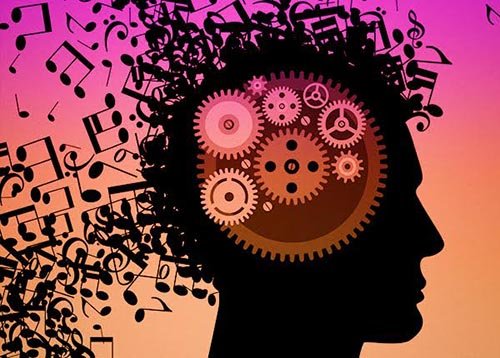
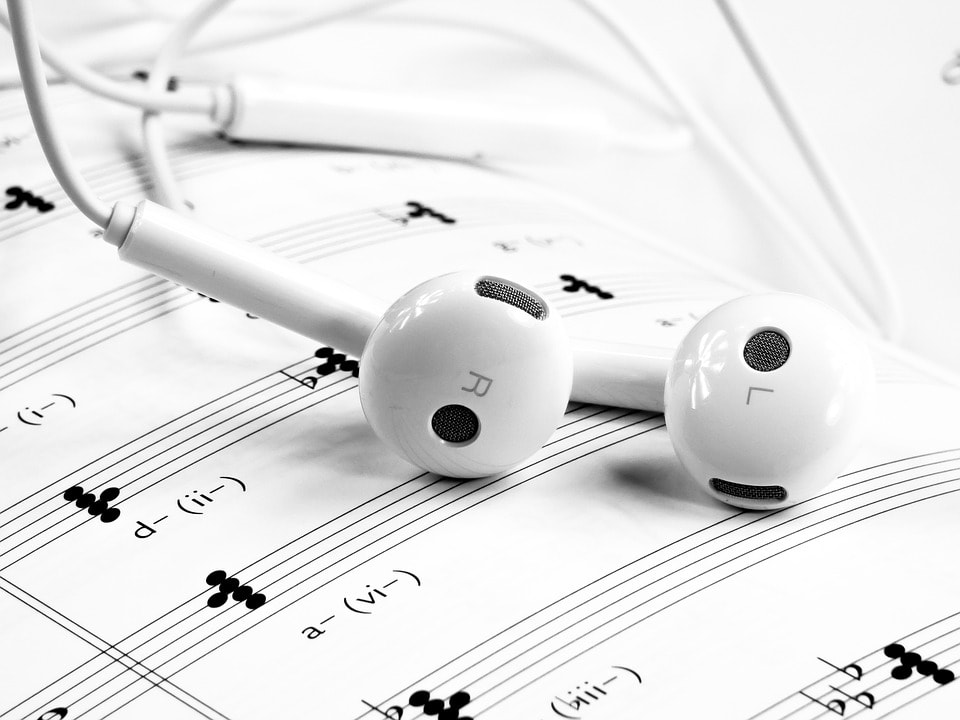
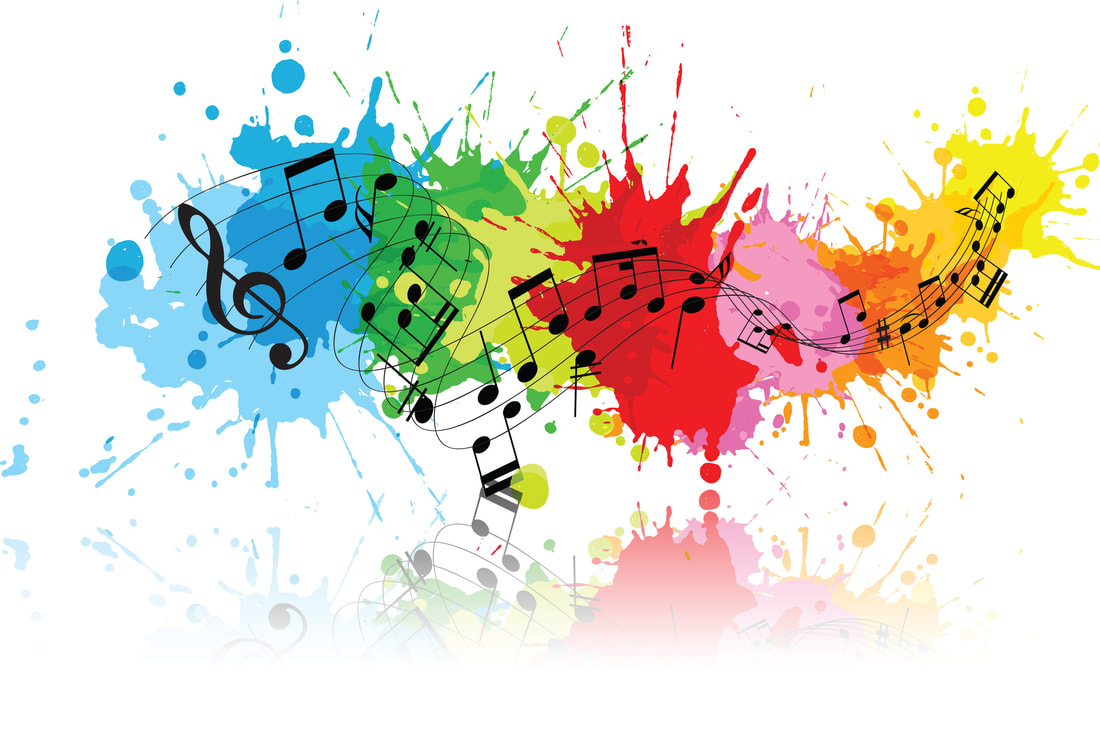

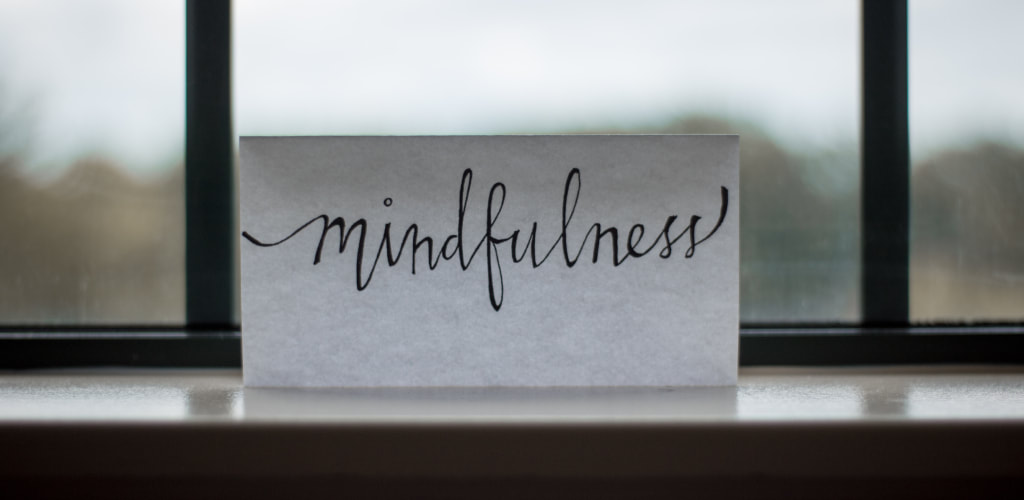

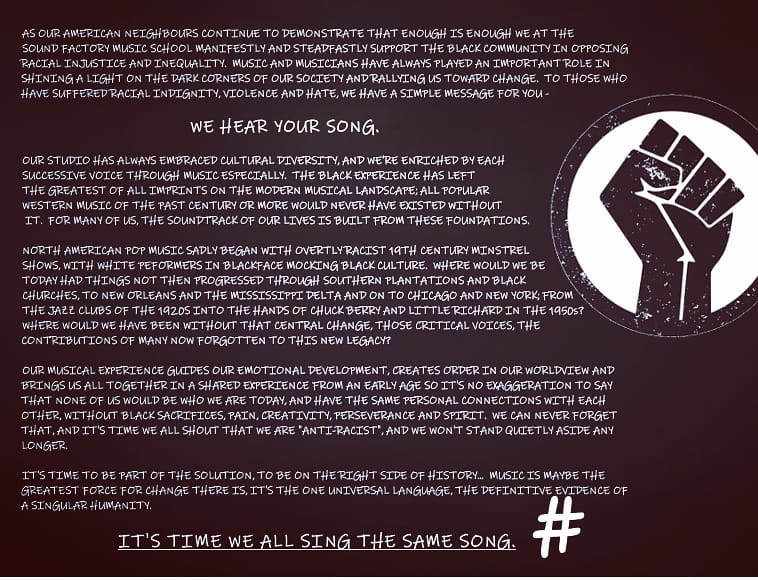






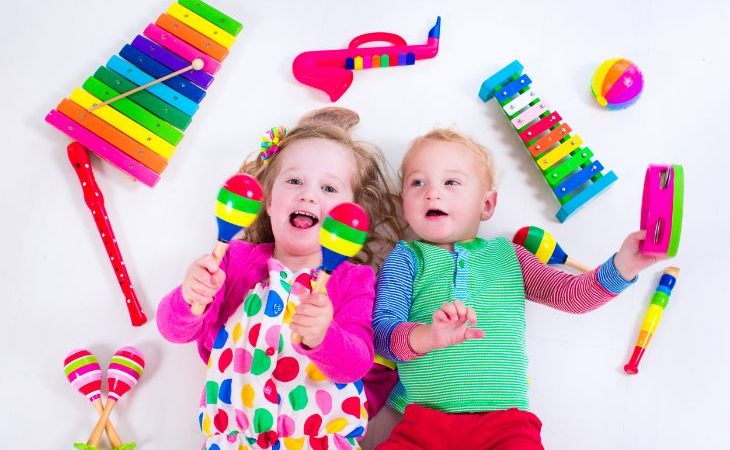

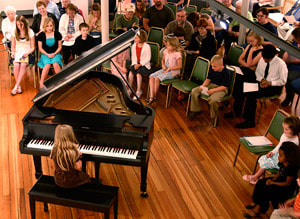

 RSS Feed
RSS Feed